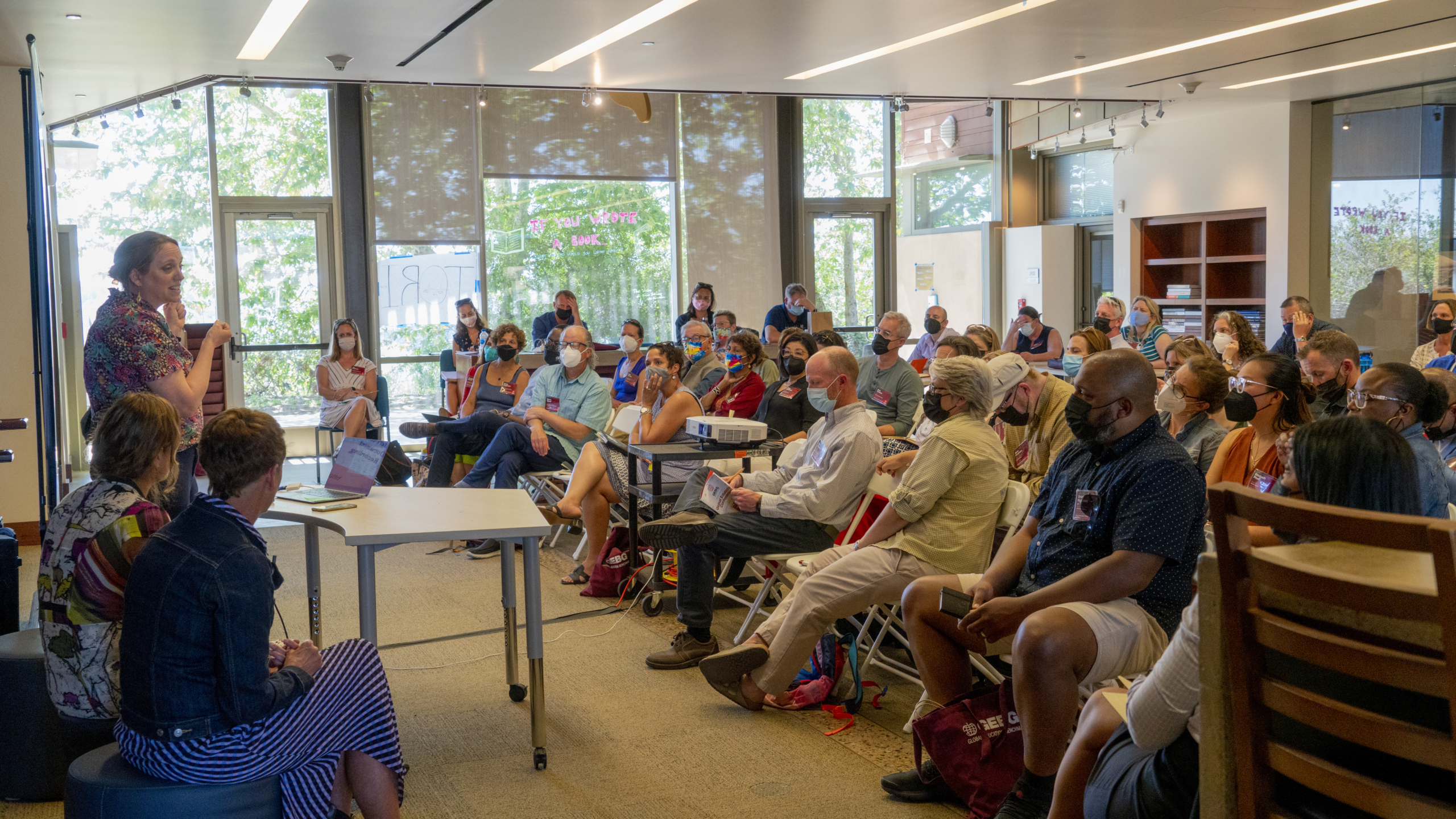Improving our Communities and Craft through Action Research

Globally-minded schools, finding themselves in standby mode over the last two years, have begun to spring back to life. While the data show that some schools have already begun to travel internationally, most are just beginning to take those first steps, and as they do, many schools are creating a new normal, with a stronger focus on the tangible and observable outcomes of their global programs and a new focus on teaching global competencies in ways that don’t involve travel.
It was in that context that GEBG created the Action Research Fellowship Program, which welcomes its second cohort this coming fall. Participants in the 21/22 program were charged with conducting a research project at their school intended to answer an essential question related to global competency development in student or faculty populations.
Different from traditional academic research that tries to produce data that can then be applied to multiple situations or broader populations, action research focuses on improving practice and usually falls within one of three areas: schools looking to evaluate aspects of their programs with tangible information, schools looking to build community by becoming more aligned with school goals and missions, or teachers looking to improve their craft. What they all have in common is a desire to move past assumptions and anecdotes and use data to make progress on programs or strategic initiatives that highlight the goals and mission of their school.
This past year the program was led by GEBG Executive Director Clare Sisisky and me, both of whom have experience with academic and action research. Sisisky recently finished her doctorate in education from the University of Pennsylvania, while my doctorate from the University of Zaragoza focused on growth in intercultural competence and creativity in high school students in the U.S. and abroad.

One group of Fellows focused on “Assessing Student Global Competence Development” and the other on “Faculty Professional Learning for Global Competence Development.”

Kassandra Brenot, Director of Global Education at Santa Catalina School (CA), presents her findings around shared understandings of “global competence” within her faculty at the GEBG Annual Conference 2022.
I believe that action research can be much more rewarding than academic research because of the ability to see immediate benefit at the individual school level. Because you spend less of your time with endless literature review and more time trying to answer a very specific question relevant to the school and community where you work, this type of research can help galvanize school goals – even in circumstances where the research gives you answers you didn’t expect. Academic research has its place, but as working professionals, our first obligation is to serve our students, our schools, and ourselves. Action research can help us all grow together.
According to Sisisky, the fellowship is a good example of how GEBG aims to provide resources for its members that might not be accessible otherwise: “When we first conceived of the action research fellowship, we wanted to strike a balance of providing resources and guidance without that help feeling overwhelming. We wanted to provide individual support for those who needed it and I think that in the first year we were able to do so. Like any new program, we still have our eye on tweaks and improvements, but overall we are happy with the progress that we have made and look forward to offering it again in the fall.”
The participants in this year’s program produced exemplary research that showed the power of the action research structure. Ingrid Herskind, from Flintridge Preparatory School in California, wanted to see if using a design-thinking scaffolding could set up a valid method for student global competence development and assessment. Using a mixed approach of survey research and interviews, she hopes to test her curriculum structure against the data she is continuing to collect.
At Wellington College, Ana Romero hoped to gauge the effectiveness of the “Portal” program launched at the college, started as a way for students and faculty to engage in a live exchange of ideas with other students and educators via a large videoconferencing system on campus. Her essential question was to see if the program could improve levels of empathy for students who participated. She surveyed students and found that the answer to her question was “yes” with regard to the metric that she studied.

Key findings from Ingrid Herskind’s action research demonstrate student learning in specific areas of global competence.

Key findings from Ana Romero’s action research demonstrate that global dialogues via their school’s Portal do effectively teach global competencies, as defined by the school and Asia Society.
For GEBG Fellows who focused their research on developing global competencies in faculty, many participants had an “aha” moment when they collectively realized that their schools didn’t have a shared definition of global competencies that would allow for a useful measurement of progress. As a result of this realization, many participants focused on collecting data around their faculty’s understanding of key terms associated with global competence, determining whether or not faculty shared similar understandings, and, finally, figuring out how to arrive at common goals and understandings.
As current participants wrap up their participation in the fellowship, many are excited to continue their work. In many ways, that enthusiasm and interest in ongoing data-based decision-making is the ultimate goal of action research. This year’s fellows believe in the value of examining our craft, with the ultimate goal of providing global learning experiences for students that are based on clear and measurable outcomes.